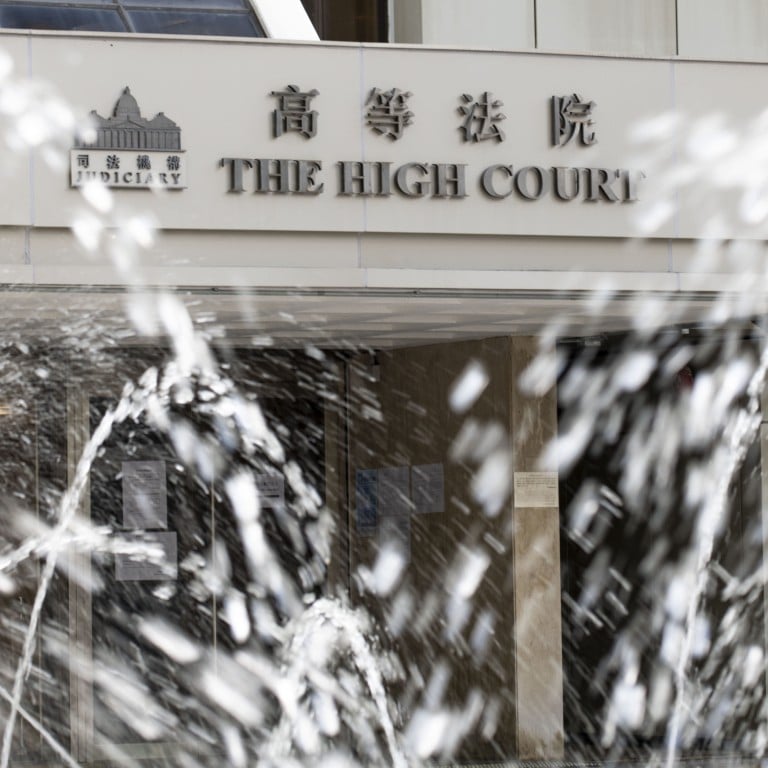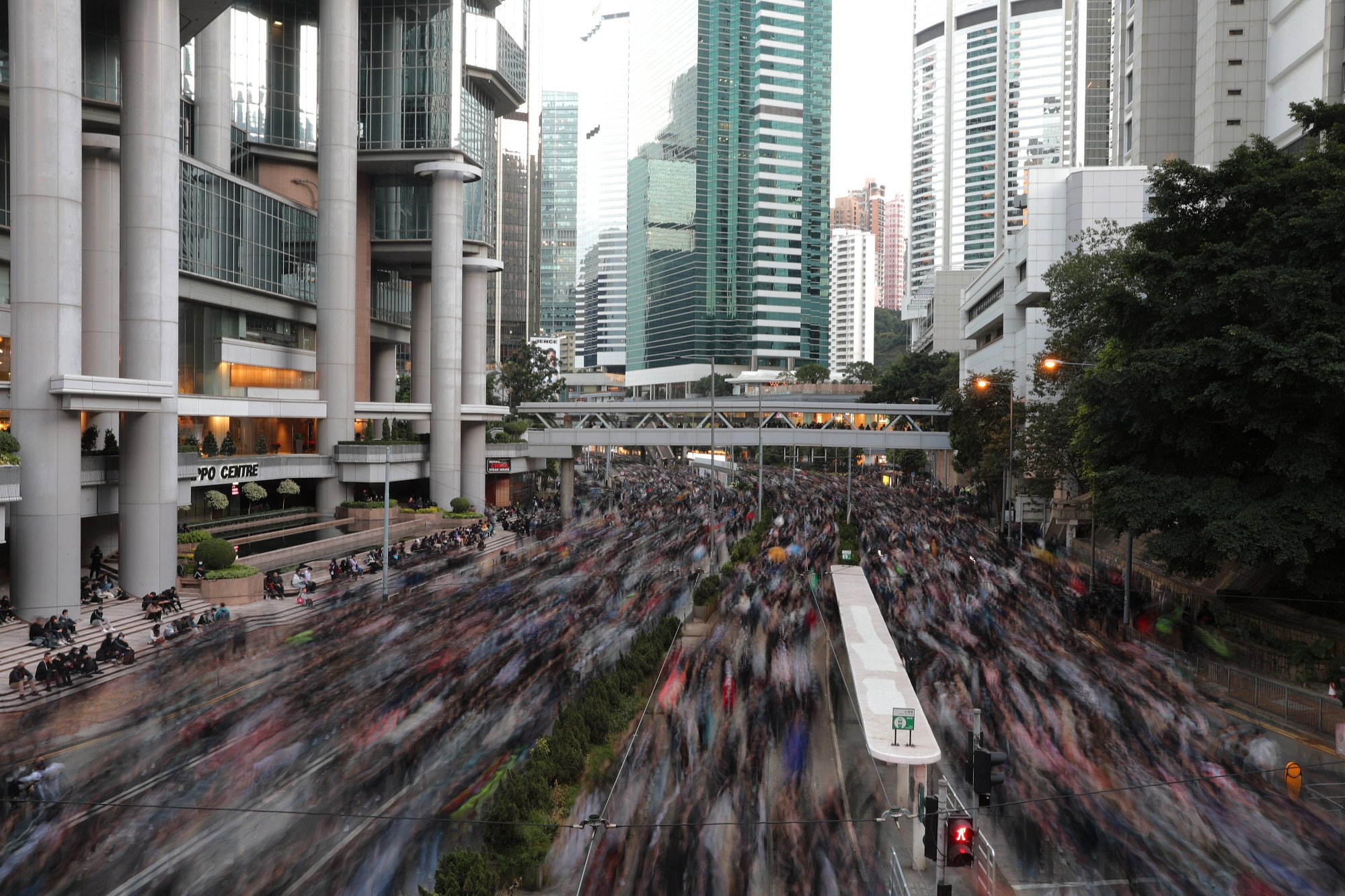
Hong Kong national security police officer admits destroying notes of talks with alleged 2019 bomb plot mastermind
- National Security Department officer Lau Wai-hung also denies coercing alleged plot leader Wong Chun-keung into making statements
- Lau tells High Court he had several meetings with Wong and destroyed notes after each interview
Lau Wai-hung, a detective constable in the force’s National Security Department, on Thursday also denied police had forced Wong Chun-keung, the alleged ringleader of the plot, into giving statements and divulging phone passwords.
He was speaking as he was questioned by lawyers for seven defendants who face High Court conspiracy charges under the United Nations (Anti-Terrorism Measures) Ordinance in connection with an alleged plan to plant two bombs in Wan Chai on December 8, 2019.
Prosecutors this week told the court that Wong, who earlier pleaded guilty to conspiracy to commit plant bombs near the police force’s headquarters and close to a petrol station on Hennessy Road, was behind the plot and would testify against alleged former group members.

Lau testified that he had had seven meetings with Wong while he was in police custody between May and September 2023 and admitted he had destroyed his notes after each meeting.
“If I had written anything down [during the meeting], I destroyed it after meeting [with Wong],” he said.
Michael Leung, a defence barrister, asked if Lau had to report to his supervisors after each meeting and whether he had shown them his notes.
Lau replied that he had never shown his notes to other officers.
“You claimed that you destroyed the notes, but indeed you just did not want this court and the lawyers to see the evidence of Wong bargaining with police when he first turned, is that it?” Leung asked.
Lau denied the claim and added that he scribbled some main points during the meetings and fleshed them out when he returned to his office to file drafts of Wong’s statements.
He said it was Wong who first asked to meet police officers and came forward with a proposal to plead guilty.
But Lau told the court Wong did not discuss what type of confession he would make in the first three meetings between May and June or discuss details of the case with him.
Barrister Thomas Iu asked Lau what the two had talked about over each hour-long meeting.
Mastermind and team leader of plot to bomb officers in Hong Kong plead guilty
Lau said Wong repeated his intention to plead guilty and kept telling him to talk to his legal representatives, which were the “most important” parts of the discussions he could remember.
Lau admitted that Wong’s lawyer was not present during the entire timespan of the interviews.
Wong originally faced four charges – three conspiracy charges and one charge of possession of explosives – and appeared in court for a preliminary hearing in December 2022.
Iu said Wong denied all charges against him at that stage.
Lau told the court that Wong agreed to make a non-prejudicial statement – implying he would be given immunity as a witness in exchange for testimony from him – in the fourth meeting on August 24 last year.
That meant all evidence Wong provided for the prosecution could not be used in any prosecution against himself.
Leung said the Department of Justice did not often grant immunity, even if Wong wanted to turn.
Lau also denied that he had passed on information to the Department of Justice that he had obtained over the first three meetings, before Wong had a chance to take legal advice.
Barrister Priscilia Lam Tsz-ying said two charges against Wong were withdrawn by the prosecution as a result of the negotiations.
“The reason why you did not keep records of the meeting with Wong was because you did not want the defence to know the whole story [of the bargain],” Lam said.
Hong Kong student shot by police during protest pleads guilty to attacking officer
Lau insisted that was not the case and that he had no advance knowledge that the prosecution had made a plea bargain deal with Wong.
Wong admitted one count of conspiracy to provide or collect property to commit terrorist acts. Co-defendant Lau Pui-ying denied the charge.
Lawyers for the defence highlighted that the force’s financial investigations division were involved in a separate investigation at the time and had interviewed Wong in connection with it, but the officers had retained notes of their meetings with him.
Dick Lee, a defence barrister, asked whether Lau’s method of dealing with his notes was “unusual”.
Lau told the lawyer he only kept records when he took statements under caution.
The court was told Wong signed a 120-page statement on September 20 last year after an eighth meeting with Lau.
The trial continues on Friday.

